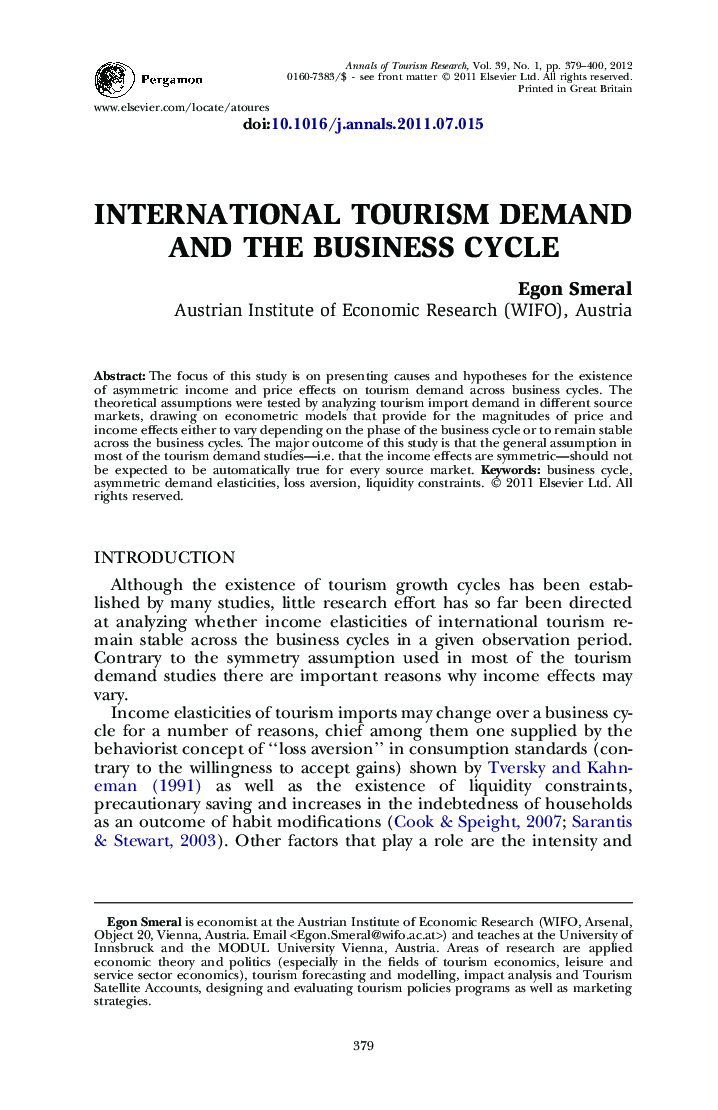| Article ID | Journal | Published Year | Pages | File Type |
|---|---|---|---|---|
| 1007635 | Annals of Tourism Research | 2012 | 22 Pages |
The focus of this study is on presenting causes and hypotheses for the existence of asymmetric income and price effects on tourism demand across business cycles. The theoretical assumptions were tested by analyzing tourism import demand in different source markets, drawing on econometric models that provide for the magnitudes of price and income effects either to vary depending on the phase of the business cycle or to remain stable across the business cycles. The major outcome of this study is that the general assumption in most of the tourism demand studies—i.e. that the income effects are symmetric—should not be expected to be automatically true for every source market.
► Elasticities of tourism import differ depending on the phase of the business cycle. ► Main reasons for changing elasticities are loss aversion and liquidity constraints. ► Increases in indebtedness and precautionary saving could also change elasticities.
